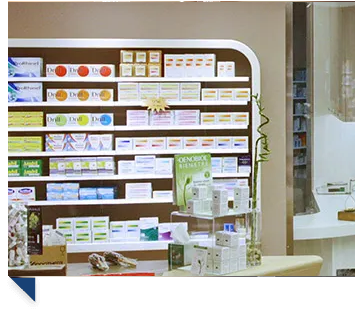At Pharmasltd, we believe that maintaining good gut health is vital for overall well-being. As pharmacists, we want to share valuable insights and information to help you safeguard your gut health. The gut, often referred to as the “second brain,” plays a significant role in digestion, nutrient absorption, immune function, and even mental health. Here are some key points we want to highlight:
- Balanced Diet: A well-balanced diet rich in fiber, fruits, vegetables, whole grains, and lean proteins is essential for a healthy gut. It promotes the growth of beneficial gut bacteria and helps prevent digestive issues such as constipation, bloating, and diarrhea. Avoid excessive consumption of processed foods, sugary snacks, and unhealthy fats, as they can disrupt the gut microbiome.
- Probiotics and Prebiotics: Probiotics are live bacteria and yeasts that provide numerous health benefits when consumed. They help maintain a healthy balance of gut bacteria and support digestive health. Look for probiotic supplements or foods such as yogurt, kefir, sauerkraut, and kimchi. Prebiotics, on the other hand, are indigestible fibers that act as food for the beneficial bacteria in the gut. They can be found in foods like garlic, onions, bananas, and oats.
- Antibiotics and Gut Health: While antibiotics are necessary to fight bacterial infections, they can also disrupt the natural balance of gut bacteria. When taking antibiotics, it’s crucial to follow the prescribed course and consider supplementing with probiotics afterward to restore healthy gut flora. Consult with your pharmacist or healthcare provider for personalized advice.
- Hydration and Regular Exercise: Staying adequately hydrated and engaging in regular physical activity promotes optimal gut function. Water helps in digestion and nutrient absorption, while exercise aids in maintaining a healthy metabolism and reducing the risk of gastrointestinal issues.
- Stress Management: Chronic stress can negatively impact gut health. It can disrupt the gut-brain axis, leading to digestive problems and inflammation. Engage in stress-reducing activities such as meditation, yoga, deep breathing exercises, and hobbies that bring you joy. Prioritizing self-care and finding healthy coping mechanisms can contribute to a healthier gut.
- Medication Use: Certain medications, such as nonsteroidal anti-inflammatory drugs (NSAIDs), proton pump inhibitors (PPIs), and antibiotics, can affect gut health. It’s important to use these medications as directed and discuss any concerns with your pharmacist or healthcare provider. They can provide guidance on minimizing side effects and offer strategies to support gut health while taking these medications.

